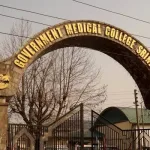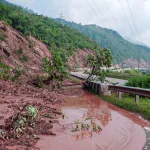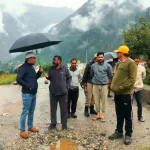Education is a cornerstone of economic and social development. It is the most effective tool one can possess to eradicate poverty, foster peace, and build sustainable, resilient societies. Education is not just an instrument of development; it is an imperative for progress and a pathway out of decades of strife. In the past the J&K UT’s education system lagged due to multiple challenges, including inadequate infrastructure, outdated curricula, and teacher shortages. However, recent initiatives aimed at revamping this sector are encouraging. Increased funding, digitalization efforts, and a focus on skill-based learning are promising signs of a brighter educational future for Jammu and Kashmir. However, the path is not without obstacles. The digital divide is a pressing concern, with a significant portion of students lacking access to quality online learning resources. It is vital to address this disparity by investing in digital infrastructure, providing affordable internet access, and incorporating digital literacy into the curriculum. Bridging this divide will not only facilitate online learning but also enable youth to participate in the digital economy, further driving the UT’s development. Many educationists are of the opinion that curriculum reform needs a radical shift towards analytical thinking, problem-solving, and creativity. Incorporating local history, culture, and the ecological richness into the curriculum can foster a sense of identity and ownership among students. Additionally, vocational training and skill development should be promoted to equip young people with market-relevant skills and enhance employability. Also, teacher training is critical for quality education. Regular professional development programs for teachers, rewards for exceptional teaching, and a safe, inclusive environment for teaching and learning can significantly improve the quality of education. The government’s role in these initiatives is paramount, but the private sector, non-government organizations, and international partners should also be encouraged to contribute. Collaborative efforts can bring about a more inclusive, robust, and effective education system. The transformation of Jammu and Kashmir through education requires a holistic, multi-faceted approach. It involves not just building schools, but building trust. Not just teaching lessons, but inspiring dreams. Not just graduating students, but shaping future leaders. It is fact that education is the thread that binds together the social, economic, and cultural fabric of society. A well-educated, skilled, and empowered youth is the greatest asset Jammu and Kashmir possesses. By investing in their education today, we are investing in the UT’s brighter and more prosperous tomorrow. Through education, we can ensure it is a future where peace prevails, prosperity flourishes, and potential is realized to its fullest extent.





